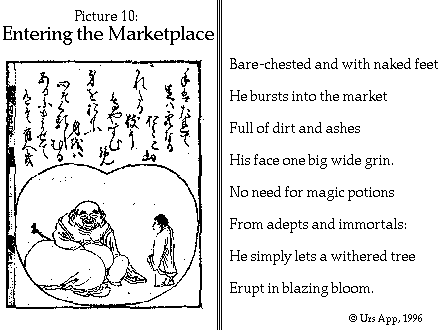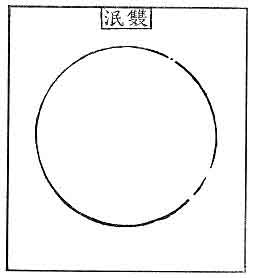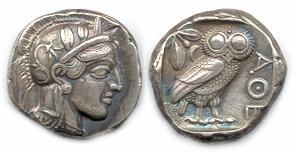Get up! Show some respect for her good name!
Speak to your lover, let her soothe your heart.
Get out of this trap, that one's so much better.
So she throws you out the door? Climb through the roof!
#1800: From Rumi's Kolliyaat-e Shams-e Tabrizi
Here is a very different mood today. Yesterday, I reached a point of passive resignation. Today, Rumi insists that I find my get-up-and-go. It's all a matter of self-respect. If I'm down it's because I'm letting others, letting life, get me down. If I seem to be abandoned by my creative impulses, then I need to seek them out more aggressively, make more of an effort.
I know I have tasks today that weigh me down, especially the one where I must ask for money for my services. This is a huge barrier. If I do something for love, how can I ask to be paid? If I do something for pay, surely I'm wasting my time when I could be doing something I love. I'm still struggling to find the overlap there. Finding work that I love and that I get paid for as well.
I've noticed, with voluntary work, that excellence on my part only leads to more demand for my time. At no point does it seem to lead to offers of payment. Why should it? I can manage without being paid, it's not an absolute necessity. However, it occurred to me that it is, after all, a matter of self-respect. If I ask to be paid, I assert a natural right for the respect that that entails. My work is of a professional standard, so it should be paid for accordingly.
A corresponding concern, suggested in the second half of today's verse, is that professionalism will lead to occasions when creativity is on call, when a product must be delivered by a deadline. What if the beloved is not available? What if the muse goes quiet on one? This must be an issue for every artist and even for every performer. Will the magic of excellence stay with me or will it evaporate just when I need it? The ego can never be fully in control of any situation but that does not mean it must throw its hands up in despair.
The astonishing theme woven into today's verse, and evident really throughout Rumi's poetry, is that life is a partnership between self and other, between the mundane and the sacred, the human and the divine, and
neither partner in the equation is superior to the other. God is not, in fact, greater than Humanity; Man is not, in fact, stronger than Woman; ego cannot control id; a leader is not above the people he leads. The partnership can be perceived in many different ways, played out on many different levels, but the basic principle is constant: it is a dance between equals. And it's not entirely a serious dance either. There are always comic elements there to lighten up the drama.
It is, I think, the concept of God (or Goddess) as friend or partner that is most astonishing and, for me, most characteristic of gnostic writing and the gnostic worldview. It is astonishing that Rumi and Shams were able to develop such a view from inside a religion that suggests so strongly that God is simply not approachable but must be submitted to. Abdallah, slave of God, is such a popular name among Muslims. Can a master and slave truly become friends? Surely each must abandon his role. Similarly, can a teacher and student become friends? Only when each abandons the traditional stance of knowing better and knowing less respectively.
Of course, this friendship or partnership ideal can become itself a tyrant. There is, for example, an ironic tyranny in the current US imposition of democracy on Iraq, so used to life under a despotic leadership. There is a place for all of these unequal relationships but, in every case, life is enhanced if the possibility of equality can stand waiting in the wings, ready for the right opportunity to be expressed. In the case of current Middle Eastern politics, it is probably most helpful to see democracy and despotism as simply two different ways of doing things. There has always been an element of each in the other and it is doubtful that either could survive in its pure or ideal form.
And so, I too must adjust my ideals and values to a reality that will rarely accord with them exactly. I too must "grow up" and shed the skin of outdated ways of seeing things. It might even feel good that way.











